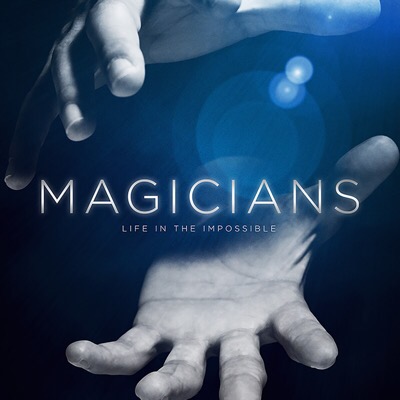The Many and Varied Reasons for Learning
Since about 2004, one of the more interesting side projects I've been working on has been running the "Close-Up Magic for Beginners" short courses at the Centre for Adult Education in Melbourne.
That's education for adults. Not "adult education" as many people mistakenly interpret.
I love teaching. Or rather, I love teaching people who are interested in being taught. That's one of the reasons I have so much respect for primary and secondary school teachers; they are frequently tasked with teaching things to people who are not even slightly interested in learning them. In contrast, teaching a group of enthusiastic adults who have paid to attend your course is a delightful experience.
It's also a very challenging one. Teaching is hard, and widely misunderstood. There's a common saying that "Those who can, do. Those who can't, teach." That might be true for some people, but those people are the ones who end up being shitty teachers. Those who teach are sometimes the ones who weren't good enough to do their thing, but they can also be people who are great at something, and care deeply about the immense challenge of helping others attain (or even exceed) that same ability.
Being good at doing something and being good at teaching others to do it are two very different skill sets.
This comes up again and again; at schools, universities... there are so many people who are brilliant at what they do, but horrible at teaching it to others.
To really teach someone well, you need to get to know them. Understand them. Know what they're trying to learn, why they're trying to learn it, what makes them tick, what they already know how to do. What they love, what they hate, what they're frightened of. You need to know what skills they already have, and which ones they found easy or hard to acquire. Are they good at learning? How many counter-intuitive skills have they already acquired in their life?
One thing that always fascinates me is people's answers to the question "why do you want to learn close-up magic?" You obviously get a lot of lapsed magic enthusiasts who want to further their skills, and plenty of soon-to-be parents, uncles/aunts and grandparents who want some tricks to amaze the imminent kids. You also get a few surprising reasons. Over the years, some of the more memorable examples I've had include:
A 70-year old man who wanted something dexterity-based to do as occupational therapy for arthritis.
A woman in her 40's who was spending a year doing one new short course on a random topic each month for general self improvement/exploration purposes.
A bartender who used a few juggling tricks behind the bar to get better tips, and figured that he could take it further by adding some magic to his repertoire.
A man who had mistaken the course for one on *actual* magic, and wanted to learn to read people's minds.
An author working on a book that featured a magician as one of the main characters, who wanted to more thoroughly research the field.
With the exception of the thought-it-was-real-magic guy (which resulted in a brief but awkward conversation), these introductions all came from interesting and dedicated students who ended up being delightful to teach.
All of them however, needed different approaches based on why they were learning. If you find yourself in the position to be teaching someone, consider first working out why they're there and what they're looking for. It will help you hugely with the challenging task of helping them find it.




You know, there is an extension to that saying… ‘Those who can’t teach, teach teachers.’…
Thanks for recognising the sweet and singular hell it is to teach those who don’t want to be there and the joy it is to watch the enthusiastic moment of discovery for one who does.
Well, and thank you for being one of those brave people who stares down that singular hell. :-)